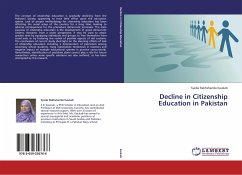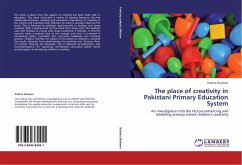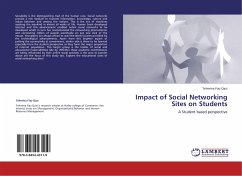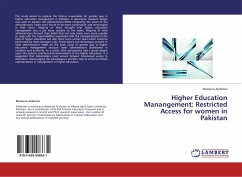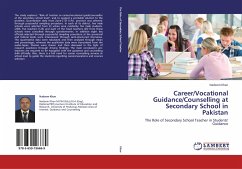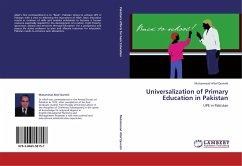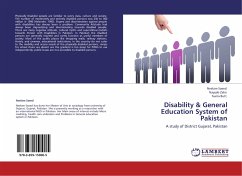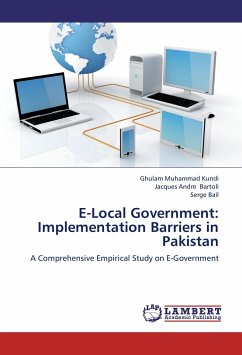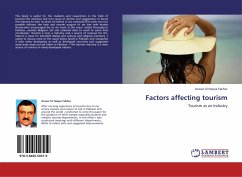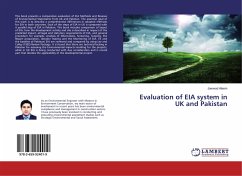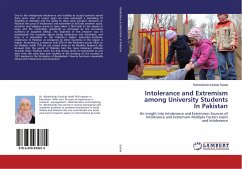
Intolerance and Extremism among University Students In Pakistan
An insight into Intolerance and Extremism Sources of Intolerance and Extremism Multiple Factors Islam and Intolerance
Versandkostenfrei!
Versandfertig in 6-10 Tagen
49,99 €
inkl. MwSt.

PAYBACK Punkte
25 °P sammeln!
Due to the widespread intolerance and inability to accept opinions varied from one's own, in recent years we have witnessed a dwindling of flexibility in attitudes and the ability to obey other people's decisions. In Pakistan the curse of intolerance and extremism of all kinds whether social, sectarian and religious seems to have taken a firm hold of the society in large and the universities specifically as witnessed by the increasing numbers of targeted killings. The objective of this research was to substantiate the causative agents being intolerance and extremism, and how it is associated t...
Due to the widespread intolerance and inability to accept opinions varied from one's own, in recent years we have witnessed a dwindling of flexibility in attitudes and the ability to obey other people's decisions. In Pakistan the curse of intolerance and extremism of all kinds whether social, sectarian and religious seems to have taken a firm hold of the society in large and the universities specifically as witnessed by the increasing numbers of targeted killings. The objective of this research was to substantiate the causative agents being intolerance and extremism, and how it is associated to the Pakistan's higher education. Sectarian intolerance in Pakistan as compared to other countries in the region is higher. According to a research only 53% of the Pakistanis accept Shias to be Muslims, while 37% do not accept them to be Muslims. Research also showed that the youth of Pakistan had the most intolerant attitude towards Shias. Pakistan never has had strong sense of nationalismas was seen from the early days and resulted in the breakup of the country in 1971 leading to the formation of Bangladesh. Poverty has been repeatedly linked with intolerance and extremism.



